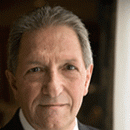This article was published in TSE science magazine, TSE Mag. It is part of the Autumn 2023 issue, dedicated to “The World of Work”. Discover the full PDF here and email us for a printed copy or your feedback on the mag, there.
Work can mean many things, shaping our identity and life chances. Some people might treat it as a chore, a challenge, or an obsession – but economists view it as a market. To kick off our special issue on the world of work, we spoke to TSE associate Marcel Boyer (Université de Montréal) about how to get ahead in today’s fast-changing professional landscape. He explains why our success as individuals and societies depends on a healthy blend of competition and cooperation.
Why should I get a job?
A job is one way to contribute to society, and to the welfare and happiness of other citizens. As an employee, you are compensated for your contributions by your employer, who is responsible for producing and delivering goods and services of value to customers, individuals or corporations. Wages can take many forms, including insurances, pensions, training, growth prospects, and benefits related to location and stress. Your overall compensation rests on the value or utility of goods and services marketed by your firm; and your relative contribution to those goods and services.
How do I improve my value to employers?
There are two ways to improve your compensation: raise the quality of products you are producing; or raise your relative contribution by acquiring valuable skills. Every human being is the owner of human capital (see panel) that can be developed and marketed in different ways. We all invest in, produce and supply some form of this resource. Your specific human capital is a matter of choice and opportunities. Given your particular portfolio of skills and knowledge, there will be numerous jobs and employment statuses available, close by or far away. Your flexibility and dedication in searching for opportunities are significant factors in improving your human capital value.
Human capital refers to the economic value of a worker's experience and skills. It includes assets like education, training, intelligence, skills, health, and other things employers value, such as loyalty and punctuality.
How can I keep up with a changing job market?
Technological change and the discovery of better ways to produce and deliver goods and services involve creative destruction: jobs are lost to allow better jobs to be created. This is one of the main engines of economic growth and improvement in social wellbeing. But the speed of change is also a source of concern. The process will destroy some forms of human capital, while making others much more valuable. It is important for people to be aware of these socio-economic movements that result from myriad decisions by individuals, firms, and other organizations. We must strive to learn new skills and adapt our human capital to an ever-evolving market.
Should governments make firms pay us more?
It is natural for a government to want to increase wages. Workers vote. Capital doesn’t. But the real source of economic growth is not low prices and high wages but the right prices and right wages; that is, competitive prices and wages that send the right signals of scarcity to workers, consumers, buyers, sellers, and producers. Tampering with competitive prices and job creation ultimately destroys social value and wealth.
Job losses may be as important as job gains for the process of net job growth. The proper policy is not to protect jobs per se, but to help individuals and firms to adapt. Government interventions to hold back creative destruction will hurt wage growth, productivity, and increase prices for consumers.
What lessons does economics have for students as they enter the world of work?
Professional relationships with employers and fellow workers require discipline and dedication. Teamwork is the key concept. It can be stressful but also energizing. This is true on a larger scale too.
To better understand the intricate web of relationships humans have developed, write a list of people who have worked for you and contributed to your wellbeing today. You will need many years to complete it. Paul Seabright weaves a beautiful story of how a shirt is produced by this amazingly ordered mesh of “collective intelligence”.
In strangers we trust: How work brings humans together
“This morning I bought a simple shirt – without informing anybody in advance – that represents a triumph of international cooperation. It was made up in Malaysia, but the materials and machinery come from at least 11 countries including India, the US, Portugal, Brazil, and Germany. Engineers in Cologne and chemists in Birmingham began the preparation many years ago, well before an Indian farmer led ploughing bullocks across his land. All these people have been working without knowing or caring about the 20 million people of widely different sizes, tastes and incomes who decided to buy stylish and attractive shirts at the same time as I did. Tomorrow there will be another 20 million – perhaps more.”
This excerpt has been edited for length from The Company of Strangers, 2010, by Paul Seabright
FURTHER READING
- Marcel Boyer, Social Democracy, Capitalism, and Competition: A Manifesto, 2023 (forthcoming in October).
- Comments on Competition Policy and Labour Markets / Commentaires sur la politique de la concurrence et les marchés du travail, Marcel Boyer 2022.
- Paul Seabright, The Company of Strangers, 2011.
- Matt Ridley, The Rational Optimist, 2011.
- Yuval Noah Harari, Sapiens, 2014.


